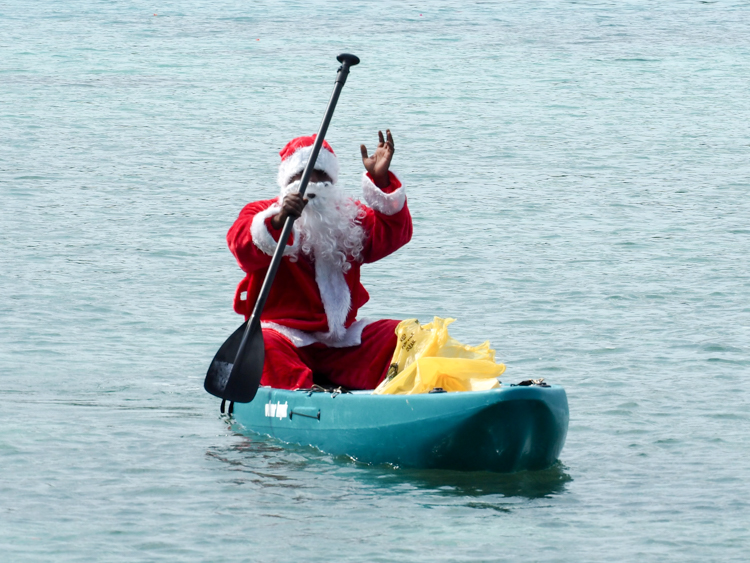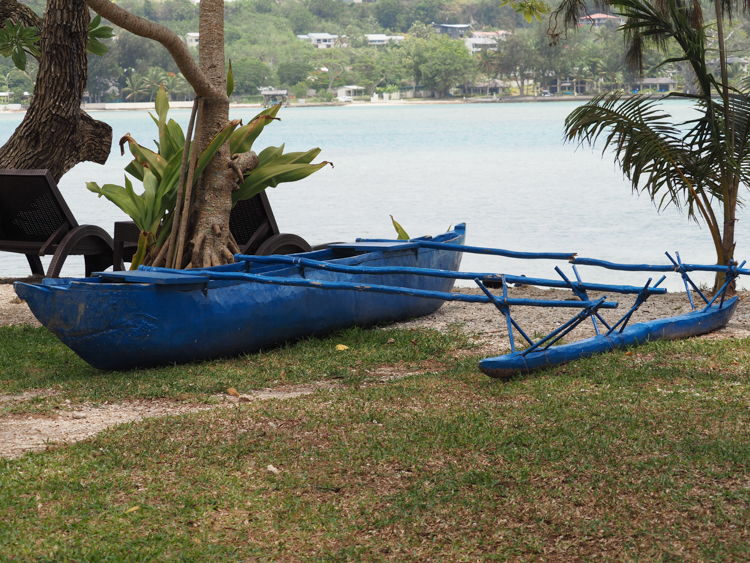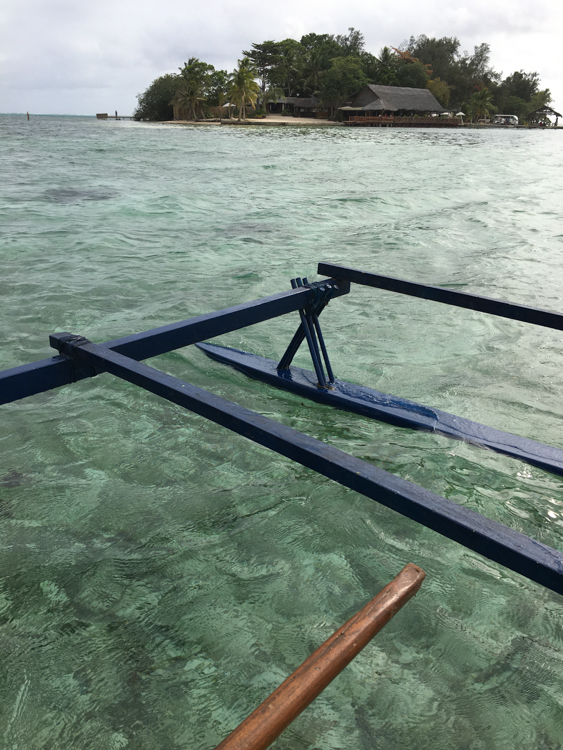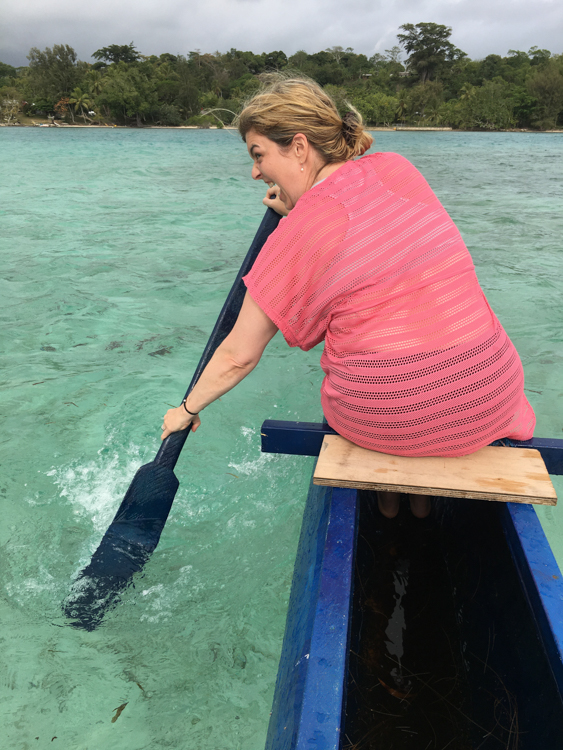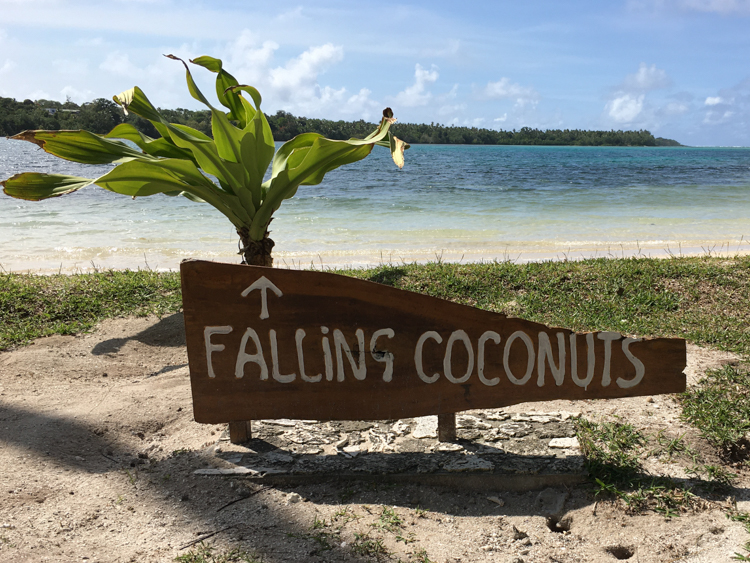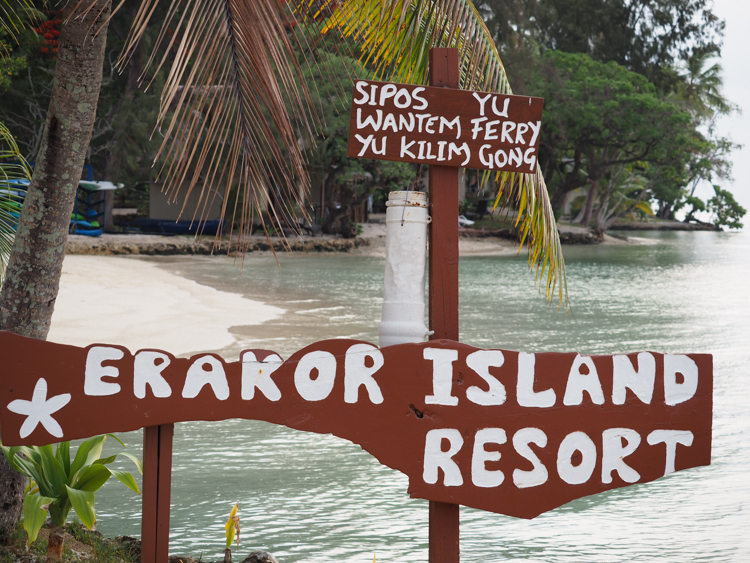
Bislama is a very expressive language
Stepping onto the Erakor Island jetty from the little outboard-powered ferry which we’d boarded on the main administrative island of Efate, we were greeted by a smiling islander in traditional dress blowing a conch shell. A somewhat cheesy start, perhaps, but our minimal luggage was whisked away to our cabin and only minutes later our four-year-old was swept up by a group of giggling children, and without further ado, they all vanished down the beach to catch starfish.
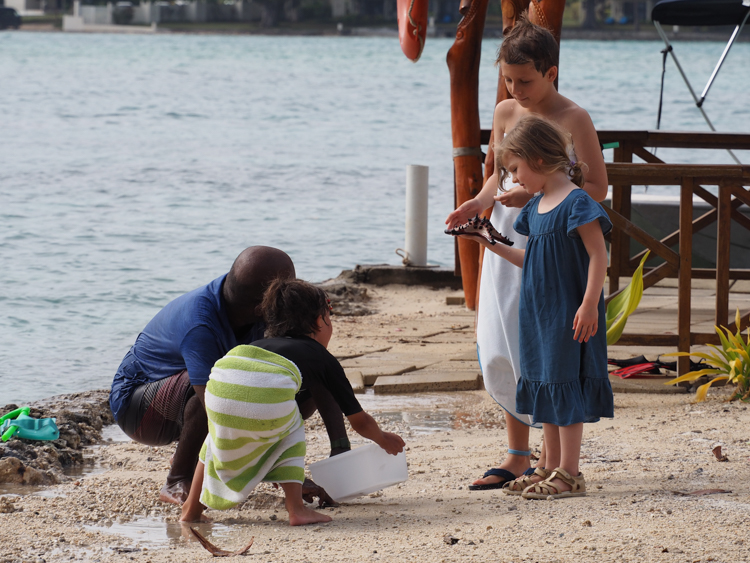
Within minutes of arrival, Berrima is presented with a large starfish
Bronwyn looked at each other over the fruity drinks that had materialised in our hands, squinted out across the blue of the reef lagoon, and relaxed.
Erakor Island is less than a kilometre long and shaped like a lamb cutlet. It is unpopulated apart from the managers of the perhaps 30 cabins dotted around the perimeter, one of which was to be our home for the week.

Our cabin on Erakor island
The island is surrounded by a shallow lagoon packed with living coral. There is a large rack of kayaks and paddle-boards available for use, as well as an ample supply of snorkelling gear in all sizes, and almost every day we paddled out to see what was happening on the reef. Berrima took to snorkelling right away, and spent ages just gently paddling to and fro over the coral heads, watching the fish.
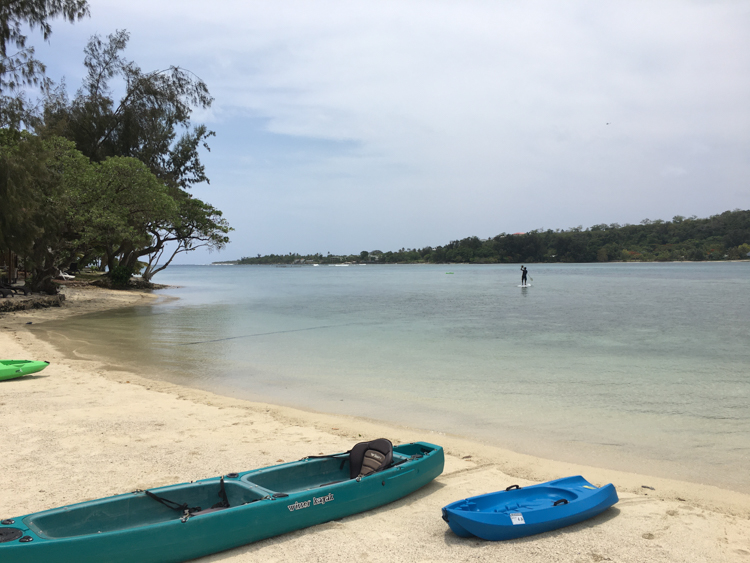
Kayaks and boards in the lagoon
The reason that we were on Vanuatu at all is down to the 2019 Australian bush fires. We had intended to have a quiet Christmas at our apartment in Canberra, but the city was smothered in thick choking smoke, so we caught the next plane out. Most of the guests in Vanuatu seemed to be Australian, and many of those that we met were unable to get home for Christmas because their home flights to Sydney were cancelled due to the bush fires. Most of them didn’t seem too distressed by their dilemma, and in any case, Santa noticed our predicament, and came to Erakor.
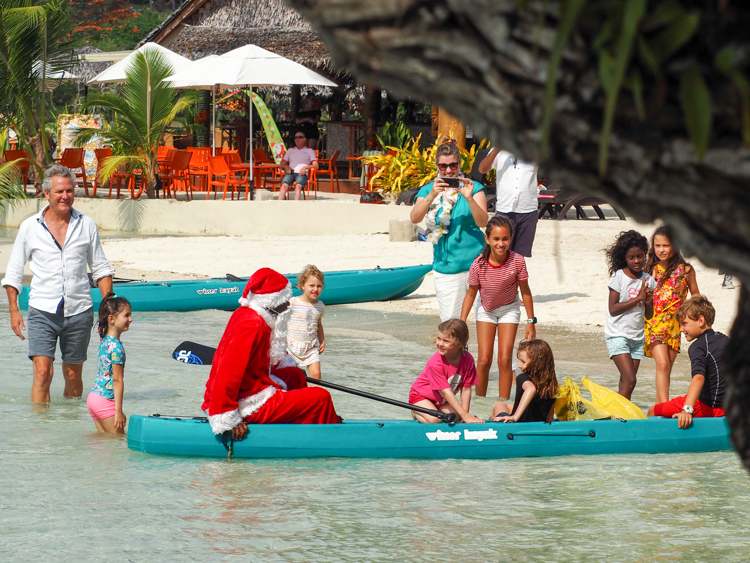
Santa arrives by canoe, with presents safely wrapped in plastic garbage sacks
Apart from the resort buildings on Erakor Island, there are a few interesting historical artefacts. In one corner is a typical Samoan family grave, with a plaque stating that the first Samoan missionaries are there interred. There is also a ruined mission building from a later, British minister, and an adjoining open-air chapel (still in use for the occasional wedding). Next to the chapel are a couple of gravestones.
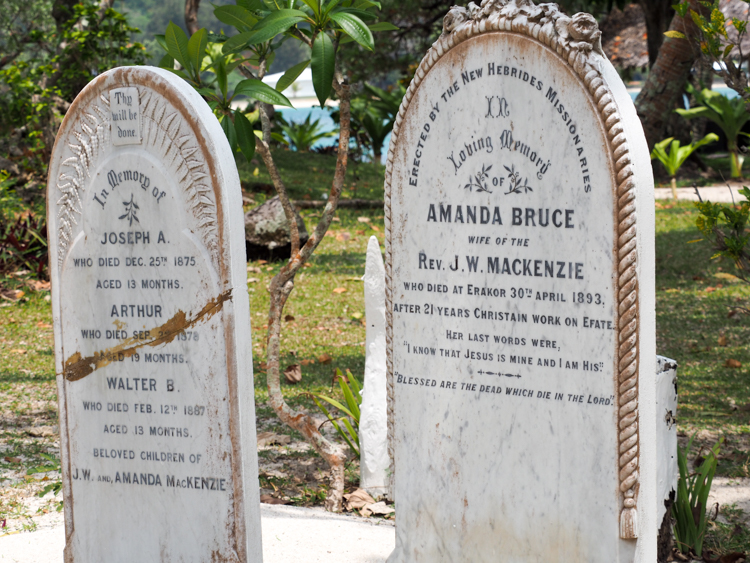
Three small children and the missionary’s wife are buried here
Three successive children had died before their 2nd year, followed five years later by their mother, but there was no grave for the missionary himself. We asked a local, and he shook his head and said that the children all died of malaria; it was prevalent then, although it has now been eradicated from Vanuatu following an extensive vaccination program by the Aussies and the Kiwis.
“But what about the Reverend Mackenzie? Why doesn’t he have a gravestone?” I asked.
Our Melanesian interlocutor chuckled broadly, “He was eaten”.
Next to the resort’s rack of modern plastic kayaks, sat a traditional dug-out outrigger canoe. I’ve always wanted to try one, and we’d seen a number of others in daily use around the lagoon, so I asked if I could borrow it. There was a certain amount of humming and hawing, and it emerged that while it was technically possible, we had to wait for the slack of the tide in case we had trouble controlling it, and they also needed to round up at least three husky gardeners to lift it down off the beach. I tentatively hefted one end of the hull, and couldn’t even lift it, so we settled down to wait.
Realising that we weren’t about to give up, a group of strong men hefted the craft down to the water, and Bronwyn and I climbed aboard to give it a spin around the lagoon.
For something that was so unwieldy on land, it was light enough in the water, and we paddled out to where Berrima was snorkelling and then up and down the reef, until we realised that quite a lot of water was seeping in through the trunk and we headed back to the shore.
Only two large men were available to lift it out of the water, and they fumbled it and smashed the outrigger. I suspect that none of the staff were too distressed that the vessel was now out of commission.
